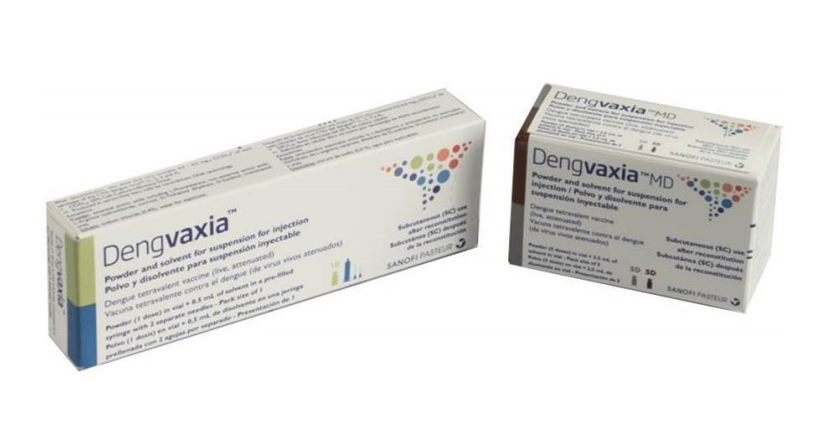
Published on January 10, 2018 in Altermidya.net
The Dengvaxia fiasco is just a symptom of a deeper malady of the US-modeled health care system which is driven by market forces rather than by people’s actual health needs. This illustrates starkly the danger of putting health in the hands of profit makers rather than putting health in the hands of the people. In fact, this is an inevitable consequence of corporate globalization pushed by the US and enthusiastically promoted by government and big business.
Having been hijacked by big business, the prevailing health system relied mainly on the initiatives of transnational drug companies to develop a dengue vaccine, which has been mistakenly perceived by reductionist scientific minds as the best option of controlling a complex infectious disease like dengue. As a consequence, profit became the primary driving factor in addressing a public health problem. It is not surprising, therefore, that Sanofi-Pasteur, the manufacturer of Dengvaxia, seeing multibillon-dollar profits within reach and under pressure by neoliberal business competition, pushed hard for the approval and use of their product despite the obvious lack of scientific and commonsensical justification. In an obvious effort to fast-track Dengvaxia, Sanofi-Pasteur made premature and exaggerated claims of safety and efficacy citing mainly clinical trials in Asia and Latin America which they themselves sponsored and with their scientists directly involved in the studies. 1 1 2This fact alone should have been a red flag for governments to be skeptical about claims of safety and efficacy by the manufacturer, especially with respect to dengue vaccine. For the past several decades, the development of a dengue vaccine has been largely unsuccessful because of the complexity of dengue and due to various conceptual and technical problems.34 Claims that a “good” dengue vaccine has been found which can now be used for mass vaccination should therefore be treated with extreme caution, particularly if claims are made by Big Pharma with a proven history of fraud, false claims and other forms of criminal behaviour in the past.5678 It is no secret that Big Pharma often manipulate or deliberately mis-interpret results of studies which they sponsor to be consistent with their corporate interest.
The danger of premature approval and use of dengue vaccine for mass inoculation was in fact pointed out earlier by reputable scientists based on various scientific studies which showed serious potential adverse effects, among which are various effects on the immune system, including what has been called “antibody-dependent enhancement,” which may lead to the occurrence of severe dengue disease.910111213 14 Some have disputed the exaggerated interpretation and misrepresentation of the results of the Dengvaxia clinical trial data by Sanofi-Pasteur and also the analysis and recommendations of the WHO based on the same industry-sponsored studies.151617
Several other scientists and concerned medical doctors and professionals have also questioned the efficacy of several vaccines and have warned repeatedly on the significant risks associated with vaccination. In fact, numerous studies support these allegations of questionable safety and unacceptable risks. 181920212223 Despite the fact that vaccines do stimulate the production of specific antibodies, vaccines may in fact be destroying the coordinated and total immune system response to an infection, contrary to what has been claimed that vaccines strengthen the immune system. Several published scientific studies have shown the adverse effects of various types of vaccines on the immune system of vaccinated individuals, especially infants and children.24252627282930 It has been demonstrated in laboratory studies, for example, that a vaccine can weaken the immune system and this finding has been corroborated by clinical studies that showed an increase in the incidence of serious illnesses following vaccination of children as compared to the incidence in the absence of vaccination. Many of these illnesses may manifest only much later and by then, the vaccine may not even be suspected as a causative factor.
The inherent danger of injecting microbial protein fragments, DNA and other foreign materials into the human body, especially in children, is well documented in the scientific literature.31323334 Dengvaxia, and in fact, all vaccines, contain such hazardous foreign fragments and materials. One particularly hazardous material used in vaccines as adjuvant is aluminum, a known neurotoxic agent. Mercury, another neurotoxicant implicated in neurodevelopmental disorders, is still present in some vaccine preparations, particularly in flu vaccine. In the Dengvaxia vaccine, there is very little information about potentially hazardous foreign materials present in the vaccine. Trometamol, an alkalinizing agent used in various industrial products and cosmetics, is listed by Sanofi-Pasteur as an ingredient but with very little toxicologic information available. What is more of concern is that the Dengvaxia vaccine is produced through genetic engineering technology with uncertain but potentially serious hazards.35363738 Even if a vaccine candidate is deemed essential in addressing the problem of Dengue, a rigorous safety assessment, including adequate, randomized, and placebo-controlled clinical trials must be undertaken and an honest-to-goodness risk-benefit assessment must be performed before any mass vaccination can be done. Adherence to the precautionary principle is a must, especially if lots of people are expected to be exposed to the invasive vaccination procedure. It is evident that in the Dengvaxia case, such precautionary assessment was not done properly. Even the fundamental ethical principle “First do no harm” was clearly not in the minds of those who pushed for the Dengvaxia vaccine.

